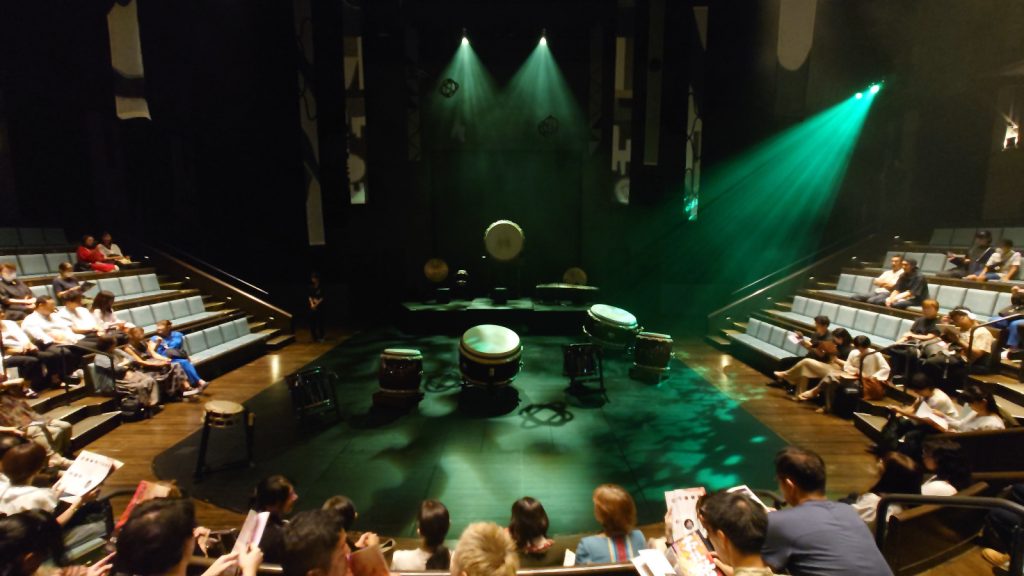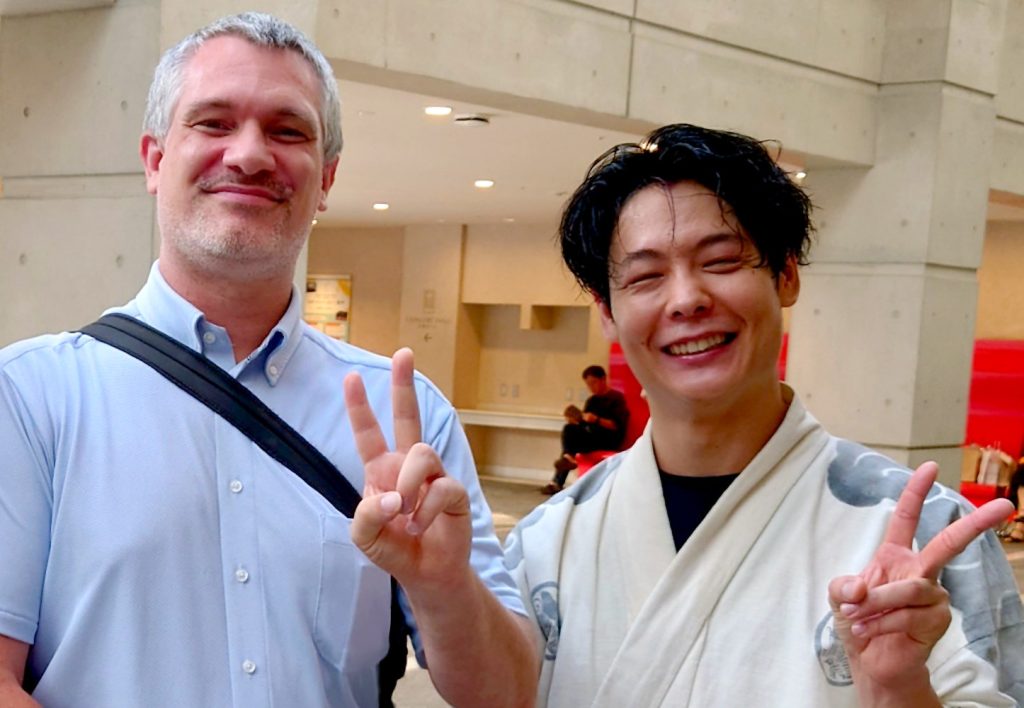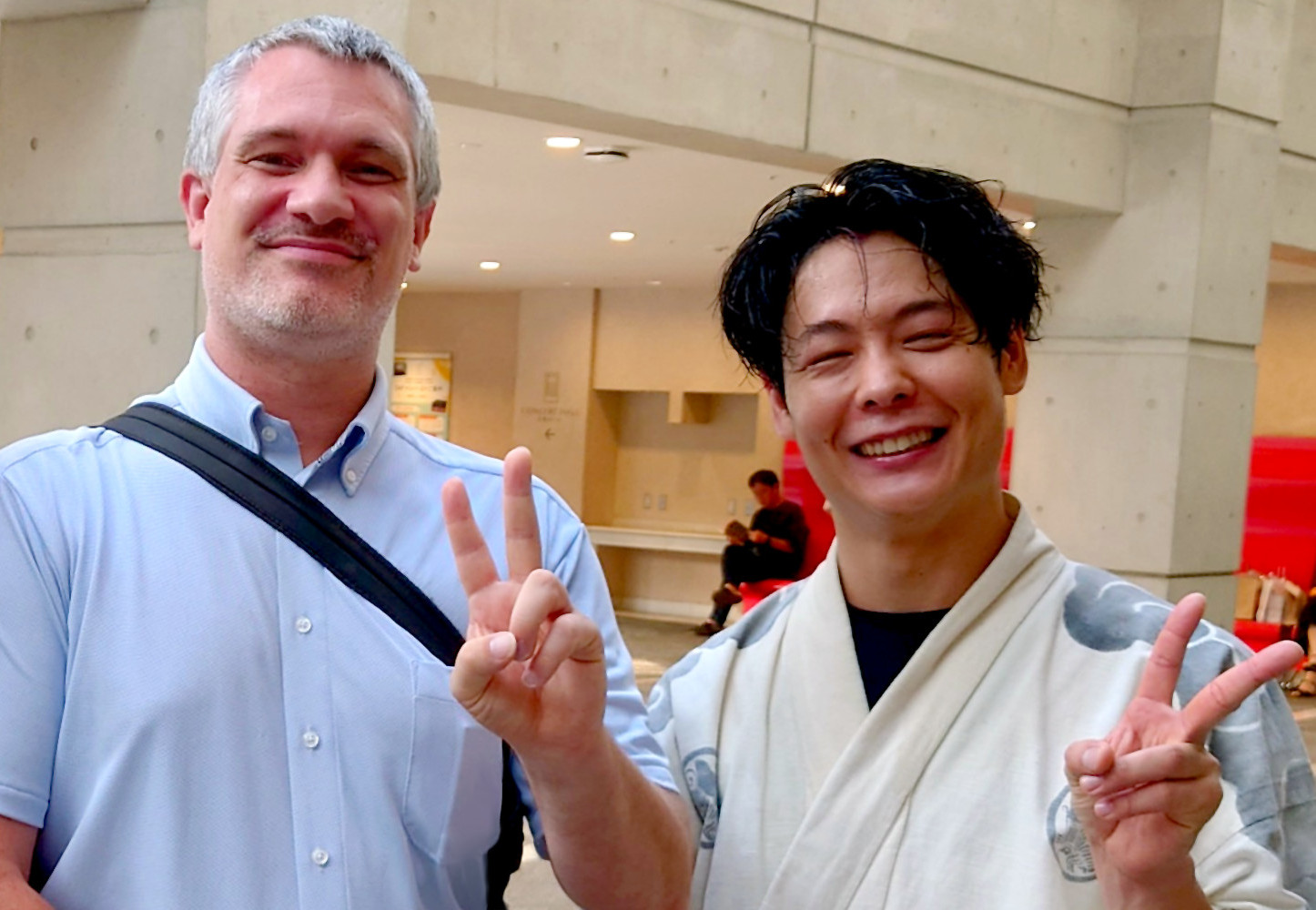Matoi-no-kai’s founder and his team charmed me during the Ziqqurat concert this afternoon at Saitama Arts Theatre. Their captivating performance audaciously blended traditional Japanese music, reflections about civilization, and elements of the Book of Genesis common to the Hebrew Bible and Christian Old Testament. And despite a busy sweltering summer (“only” 36℃ outside today), this live relaxed and reinvigorated me thanks to its intimate setting with proximity to the performers on 3 sides.
Matoi-no-kai & Shunichiro Kamiya
Founded in Nagoya in 2017, Matoi-no-kai is more than a Japanese music group; it’s a vibrant community dedicated to preserving and promoting the Japanese musical scene, starting with drumming. Open to players, performance/music fans, and Japanese culture lovers, Matoi-no-kai regularly looks for new members beyond the 32 male & female musicians from Aichi, Gifu, Mie, Shiga, Shizuoka, Osaka, and Tokyo featured on its webpage. Enthusiast in Japan? Let them know!
Talented drummer instrumental in shaping Matoi-no-kai’s unique identity, the founder Shunichiro Kamiya is also a member of Yuranza (bespoke performances, international workshops) and an ex-member of Kodo (annual Earth Celebration music festival). He performed 1,000+ times in North & South America, Europe, Asia, and Oceania. Venues included Boston Symphony Hall; festivals included Burning Man. Beyond his technique, I admire most his phenomenal stamina.
What does Matoi-no-kai mean? During the samurai era, firefighters carried matoi flags to identify their brigade. Matoi-no-kai can thus be translated as “gathering of flags”, reflecting a respect for differences amidst mutual aid towards societal good.
Example: Ziqqurat Concert
The Ziqqurat concert remarkably showcased the artistic prowess of Shunichiro Kamiya and his group. Inspired by the biblical Tower of Babel, it told of human ambition and divine wrath. Producer Shunichiro Kamiya’s respectful interpretation infused a distinctly Japanese perspective, incorporating elements of Ancient Shintoism (Japan’s indigenous religion) and traditional Japanese aesthetics.
The concert featured diverse musical instruments: taiko drums typical during matsuri, Japan’s national instrument koto, shinobue transverse flutes, hand cymbals, gongs… The rhythmic interplay between these Japanese instruments, following powerful vocals and combined with captivating dances, wove a vivid musical tapestry. The stage design enhanced the storytelling and performance with dramatic lighting effects, banners, and celestial bodies.

In this Tower of Babel context, I was most struck by the use of traditional Japanese costumes. From distinctive kimonos to ancient yamabushi attire, the costumes of the 12 performers added layers of visual appeal, diversity, and authentic timelessness to the powerful performance.
I particularly appreciated the unusual storytelling and distinctiveness of the Ziqqurat concert. It differed greatly from the 4 traditional concerts I previously enjoyed this year. The official trailer just hints at what you could experience like me today:
Is Matoi-no-kai For You?
Matoi-no-kai is a close-knit community beyond musical talent. Its commitment to social interaction and cultural exchange is evident in its various activities such as wadaiko workshops, community events, and collaborations with other artists. Its webpage is in Japanese only but you can try inquiries in English (the group has a bilingual American agent with limited availability).

If you seek an exceptional cultural memory, I highly recommend attending a Matoi-no-kai concert. Their high-quality performances are accessible in diverse regions and reasonably-priced (Ziqqurat cost 6,000 yen = 42 dollars = 38 euros). For the sake of simplicity, international travellers should ask their travel agent (bilingual or partnering with a local travel agency) to get details and secure their booking.
